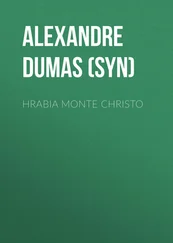"Never mind, sir, we will not forget you; make your mind easy. In the meanwhile" (the king here detached the cross of the Legion of Honor which he usually wore over his blue coat, near the cross of St. Louis, above the order of Notre-Dame-du-Mont-Carmel and St. Lazare, and gave it to Villefort) – "in the meanwhile take this cross."
"Sire," said Villefort, "your majesty mistakes; this is an officer's cross."
"Ma foi," said Louis XVIII., "take it, such as it is, for I have not the time to procure you another. Blacas, let it be your care to see that the brevet is made out and sent to M. de Villefort." Villefort's eyes were filled with tears of joy and pride; he took the cross and kissed it.
"And now," he said, "may I inquire what are the orders with which your majesty deigns to honor me?"
"Take what rest you require, and remember that if you are not able to serve me here in Paris, you may be of the greatest service to me at Marseilles."
"Sire," replied Villefort, bowing, "in an hour I shall have quitted Paris."
"Go, sir," said the king; "and should I forget you (kings' memories are short), do not be afraid to bring yourself to my recollection. Baron, send for the minister of war. Blacas, remain."
"Ah, sir," said the minister of police to Villefort, as they left the Tuileries, "you entered by luck's door – your fortune is made."
"Will it be long first?" muttered Villefort, saluting the minister, whose career was ended, and looking about him for a hackney-coach. One passed at the moment, which he hailed; he gave his address to the driver, and springing in, threw himself on the seat, and gave loose to dreams of ambition.
Ten minutes afterwards Villefort reached his hotel, ordered horses to be ready in two hours, and asked to have his breakfast brought to him. He was about to begin his repast when the sound of the bell rang sharp and loud. The valet opened the door, and Villefort heard some one speak his name.
"Who could know that I was here already?" said the young man. The valet entered.
"Well," said Villefort, "what is it? – Who rang? – Who asked for me?"
"A stranger who will not send in his name."
"A stranger who will not send in his name! What can he want with me?"
"He wishes to speak to you."
"To me?"
"Yes."
"Did he mention my name?"
"Yes."
"What sort of person is he?"
"Why, sir, a man of about fifty."
"Short or tall?"
"About your own height, sir."
"Dark or fair?"
"Dark, – very dark; with black eyes, black hair, black eyebrows."
"And how dressed?" asked Villefort quickly.
"In a blue frock-coat, buttoned up close, decorated with the Legion of Honor."
"It is he!" said Villefort, turning pale.
"Eh, pardieu," said the individual whose description we have twice given, entering the door, "what a great deal of ceremony! Is it the custom in Marseilles for sons to keep their fathers waiting in their anterooms?"
"Father!" cried Villefort, "then I was not deceived; I felt sure it must be you."
"Well, then, if you felt so sure," replied the new-comer, putting his cane in a corner and his hat on a chair, "allow me to say, my dear Gerard, that it was not very filial of you to keep me waiting at the door."
"Leave us, Germain," said Villefort. The servant quitted the apartment with evident signs of astonishment.
Chapter 12 – Father and Son.
M. Noirtier – for it was, indeed, he who entered – looked after the servant until the door was closed, and then, fearing, no doubt, that he might be overheard in the ante-chamber, he opened the door again, nor was the precaution useless, as appeared from the rapid retreat of Germain, who proved that he was not exempt from the sin which ruined our first parents. M. Noirtier then took the trouble to close and bolt the ante-chamber door, then that of the bed-chamber, and then extended his hand to Villefort, who had followed all his motions with surprise which he could not conceal.
"Well, now, my dear Gerard," said he to the young man, with a very significant look, "do you know, you seem as if you were not very glad to see me?"
"My dear father," said Villefort, "I am, on the contrary, delighted; but I so little expected your visit, that it has somewhat overcome me."
"But, my dear fellow," replied M. Noirtier, seating himself, "I might say the same thing to you, when you announce to me your wedding for the 28th of February, and on the 3rd of March you turn up here in Paris."
"And if I have come, my dear father," said Gerard, drawing closer to M. Noirtier, "do not complain, for it is for you that I came, and my journey will be your salvation."
"Ah, indeed!" said M. Noirtier, stretching himself out at his ease in the chair. "Really, pray tell me all about it, for it must be interesting."
"Father, you have heard speak of a certain Bonapartist club in the Rue Saint-Jacques?"
"No. 53; yes, I am vice-president."
"Father, your coolness makes me shudder."
"Why, my dear boy, when a man has been proscribed by the mountaineers, has escaped from Paris in a hay-cart, been hunted over the plains of Bordeaux by Robespierre's bloodhounds, he becomes accustomed to most things. But go on, what about the club in the Rue Saint-Jacques?"
"Why, they induced General Quesnel to go there, and General Quesnel, who quitted his own house at nine o'clock in the evening, was found the next day in the Seine."
"And who told you this fine story?"
"The king himself."
"Well, then, in return for your story," continued Noirtier, "I will tell you another."
"My dear father, I think I already know what you are about to tell me."
"Ah, you have heard of the landing of the emperor?"
"Not so loud, father, I entreat of you – for your own sake as well as mine. Yes, I heard this news, and knew it even before you could; for three days ago I posted from Marseilles to Paris with all possible speed, half-desperate at the enforced delay."
"Three days ago? You are crazy. Why, three days ago the emperor had not landed."
"No matter, I was aware of his intention."
"How did you know about it?"
"By a letter addressed to you from the Island of Elba."
"To me?"
"To you; and which I discovered in the pocket-book of the messenger. Had that letter fallen into the hands of another, you, my dear father, would probably ere this have been shot." Villefort's father laughed.
"Come, come," said he, "will the Restoration adopt imperial methods so promptly? Shot, my dear boy? What an idea! Where is the letter you speak of? I know you too well to suppose you would allow such a thing to pass you."
"I burnt it, for fear that even a fragment should remain; for that letter must have led to your condemnation."
"And the destruction of your future prospects," replied Noirtier; "yes, I can easily comprehend that. But I have nothing to fear while I have you to protect me."
"I do better than that, sir – I save you."
"You do? Why, really, the thing becomes more and more dramatic – explain yourself."
"I must refer again to the club in the Rue Saint-Jacques."
"It appears that this club is rather a bore to the police. Why didn't they search more vigilantly? they would have found" –
"They have not found; but they are on the track."
"Yes, that the usual phrase; I am quite familiar with it. When the police is at fault, it declares that it is on the track; and the government patiently awaits the day when it comes to say, with a sneaking air, that the track is lost."
"Yes, but they have found a corpse; the general has been killed, and in all countries they call that a murder."
"A murder do you call it? why, there is nothing to prove that the general was murdered. People are found every day in the Seine, having thrown themselves in, or having been drowned from not knowing how to swim."
Читать дальше












